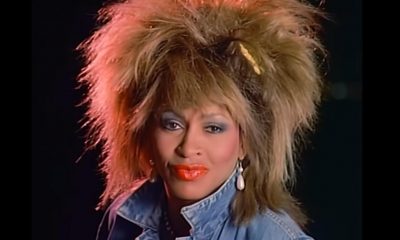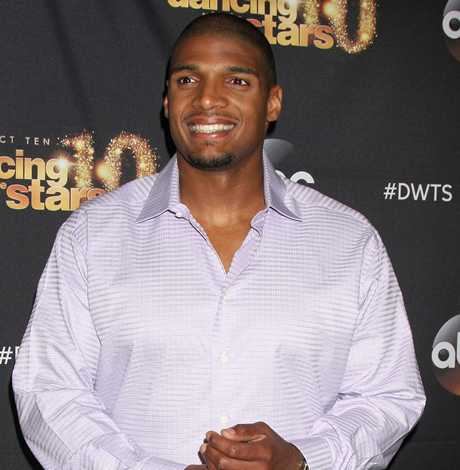Obituary
Howard Bragman, veteran publicist and LGBTQ activist, dies at 66
PR guru died of leukemia on Saturday
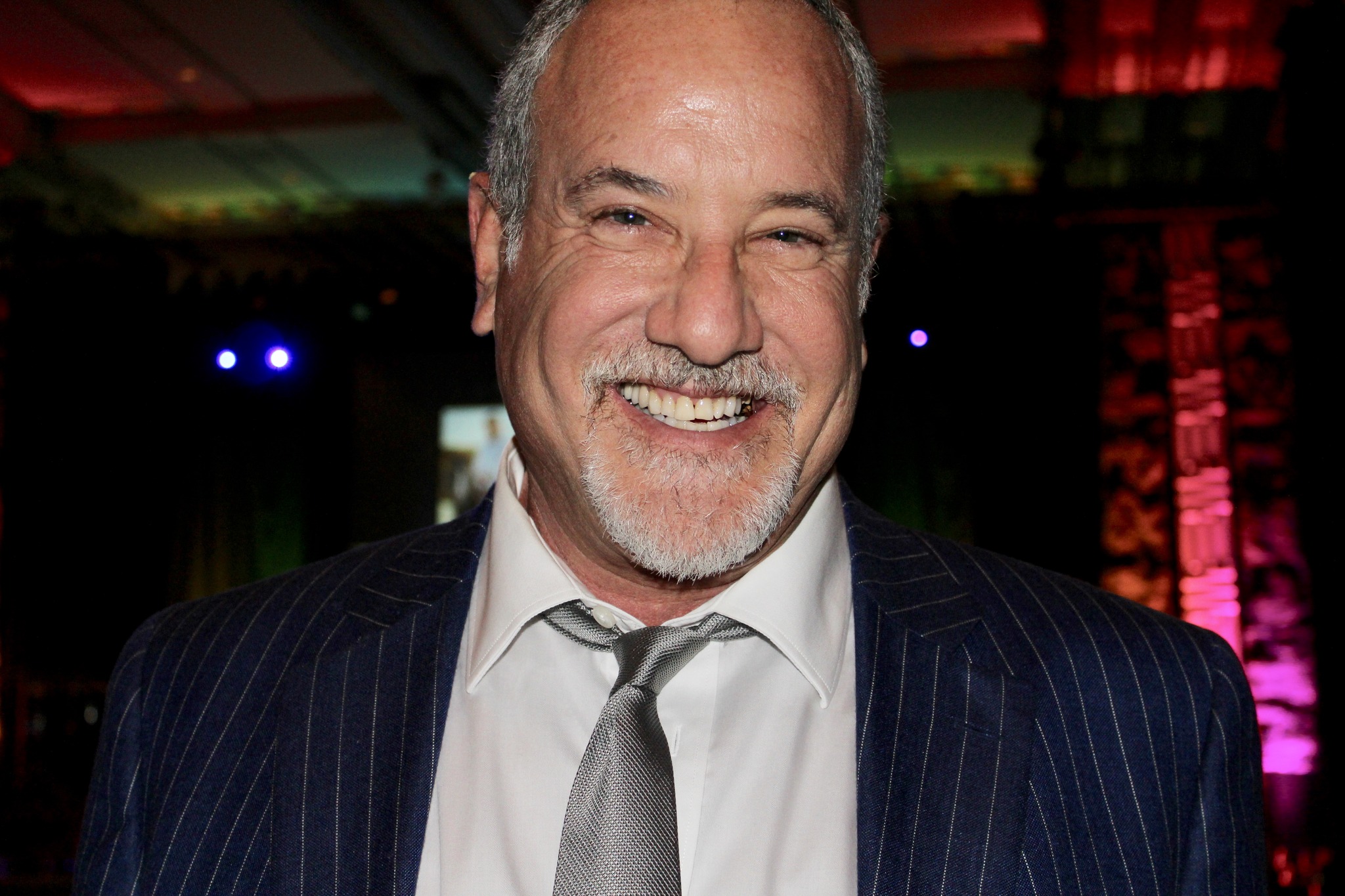
Howard Bragman died Saturday, 13 days before his 67th birthday. With the media focused on the Super Bowl, the horrific earthquake in Turkey, and UFOs in American airspace, Howard’s death has been mostly noted in the entertainment trades with little attention paid to the significant decades-long behind-the-scenes impact he had on his beloved LGBTQ movement.
Thank heavens for TMZ, with whom Howard sometimes worked closely to produce a respectful story about his PR clients, for explaining what happened.
“Howard was set to attend a wedding in Mexico with his partner, Mike Maimone, this month — but wanted to get checked out by his doctor before his travels for what he thought was a gum infection and mild fever,” TMZ reported. “Unfortunately, after testing, Bragman was diagnosed with the most aggressive form of leukemia a person can have — and it progressed ‘explosively.’ Howard was hospitalized on Feb. 2 and died less than two weeks after.”
I can’t imagine the panic at having something you need to get checked and fixed before going on a glorious trip suddenly turn into an inexplicable death sentence. My heart breaks for Howard, his partner and their families, friends and dogs. It also triggers my old PTSD about how we LGBTQ people had to face similar panic during the waves of AIDS crisis when death sentence test results happened almost every day until the miracle drug cocktail became available in 1996.
That’s what made Howard so special, so different from cut-throat manipulative Hollywood “flacks.” This highly regarded, in-demand public relations professional, crisis management expert and the go-to guy for celebrities who wanted to come out of the closet never forgot where he came from.
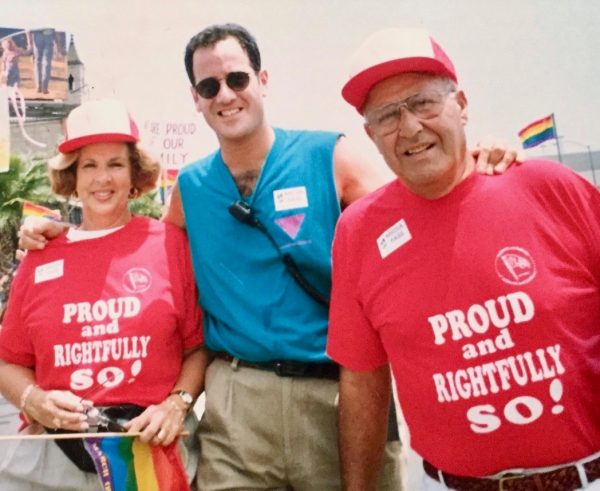
“As a fat, Jewish, gay kid in Flint, Michigan, I always felt like a Martian,” he said in announcing a $1 million endowment in 2021 to establish the Howard Bragman Coming Out Fund at the University of Michigan, operated by the LGBTQ Spectrum Center. “This campus allows you to be yourself. It allows you to spread your wings in the way you want to spread your wings. I tell people, ‘Stay strong, even when it hurts.’ And, I promise, it hurts sometimes. But, there are places that will help you ease the pain sometimes. That’s what the Spectrum Center did. That’s what Michigan did.”
Bragman added: “I don’t care how liberal the school is. I don’t care how accepting and loving your parents are. I don’t care how ‘woke’ the times are. Coming out is this most personal of journeys, and it’s a challenging journey. It’s so important for students to know they are not alone.”
I met Howard in 1989 when I was just starting in “gay” journalism and he had just co-founded Bragman Nyman Cafarelli. He dressed well but he was funny, down-to-earth and unpretentious. He sincerely cared about the people he was advising — from the rich celebrities to AIDS organizations he served pro bono. He was also very good about reaching out to the gay press, which is how I got my first introduction into the issue of the federal government’s ban on gays and lesbians serving openly in the U.S. military.
One of Howard’s first pro bono clients was Naval Academy midshipman Joe Steffan who was forced to resign six weeks before graduation because he revealed that he was gay.
Howard, gay San Francisco Chronicle journalist and fellow 12 Stepper Randy Shilts and I talked about this, among other issues, walking our dogs in a large dog park off Mulholland Boulevard. Randy later wrote about Howard in his opus “Conduct Unbecoming: Lesbians and Gays in the U.S. Military Vietnam to the Persian Gulf,” published in 1993. (Randy died of AIDS the following year. He was 42.)
After filing his lawsuit in District Court on Dec. 29, 1988, challenging the constitutionality of the gay ban, Steffan and his Lambda Legal attorneys met with reporters, who Steffan was surprised to find were supportive. Howard signed on late in 1989.
“Bragman had thoroughly impeccable professional credentials,” Randy wrote. “He had been vice president of Burson-Marsteller before launching his own public relations business in Beverly Hills. His client roster included L.A. Gear, the trendy shoe manufacturer, and numerous entertainment celebrities. At 33, he was also young enough to be comfortable being openly gay and felt obliged to devote a portion of his time and talent to support the gay movement. In Steffen, Bragman saw a man much like himself, a gay professional rather than a professional gay, but someone also committed to diminishing the prejudice gays faces in their daily lives. By late 1989, largely due to Bragman’s efforts, Joe Steffen would become the most visible gay person in America.”
That AIDS hung like a scrim over much of heterosexual thinking during the AIDS years became accidentally evident in 1991 during the long course of Steffen’s case.
“A Federal District judge ruled today that the military’s ban on homosexuals in the armed forces was justified to prevent the spread of AIDS,” Eric Schmitt wrote in the New York Times on Dec. 10, 1991. “Other Federal courts have upheld the Pentagon’s ban, but the 35-page ruling issued today by Judge Oliver Gasch of the United States District Court for the District of Columbia is unusual for its reasoning. Neither the Defense Department nor the plaintiff, a gay midshipman who sued the United States Naval Academy over discrimination against homosexuals, raised the issue of AIDS. But Judge Gasch said the Government’s policy of excluding homosexuals ‘is rational in that it is directed, in part, at preventing those who are at the greatest risk of dying of AIDS from serving.’”
In his tribute to Howard, Cyd Zeigler, co-founder of Outsports.com, notes that grappling with the stigma of AIDS over all those years, helped build his career.
“Howard Bragman wasn’t just a publicist to the stars. He was an important trailblazer for the LGBT community who fought tirelessly for thoughtful, fair coverage of gay and lesbian people in sports and entertainment. And he was a dear friend,” Zeigler wrote, noting how Howard helped gay former NFL player Esera Tuaolo come out publicly in 2002 and, with Zeigler in 2006, former NBA player John Amaechi and subsequently athletes such as WNBA player Sheryl Swoopes, golfer Rosie Jones and most famously, University of Missouri defensive player Michael Sam as he prepared for the NFL Draft.
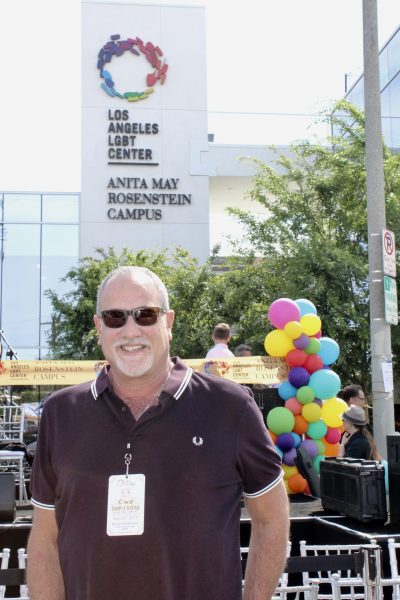
“The truth is always what you got from Howard,” Zeigler wrote. “While his job was often crisis management when stars made mistakes, his general approach was to tackle the issue head-on. Howard wasn’t a bullshitter, he’d tell you what he thinks and he had the confidence and fortitude to stick to his guns. As a gay man in Hollywood in the 80s and 90s during the AIDS epidemic, it was that strength that helped him build a career even as stigma built.”
Howard, who subsequently launched Fifteen Minutes and later La Brea Media, represented a slew of famous folks and often appeared as an on-air expert for TV programs. In 1991, he helped bring out actor Dick Sargent, the second Darrin and loving husband to Elizabeth Montgomery in “Bewitched” and “Family Ties” mom Meredith Baxter before she was outed in the tabloids. Howard also helped Chaz Bono navigate his very public transgender transition.
For me, one of my most poignant coming out interviews was with Chely Wright. “Country star Chely Wright is celebrating her birthday of choice: she officially came out as gay in People magazine and NBC’s Today Show. Her coming out coincides with the release of her new extraordinary memoir Like Me: Confessions of a Heartland Country Singer and her latest release, Lifted off the Ground, (iTunes) her first album in five years,” I wrote in the Huffington Post July 6, 2010. “The public’s attention will no doubt focus on Wright’s revelation about being gay, something she denied when confronted about rumors by country singer John Rich. But in her book and album — and in her interview with me — Wright talks about a more universal truth: how the self-loathing that comes from keeping a shameful secret can lead to despair and thoughts of suicide — and how telling that secret can lead to a kind of glorious liberation.”
Howard and I didn’t always agree. He considered himself a bridge-builder and seemed convinced that both Isaiah Washington — who described fellow actor T.R. Knight as a “faggot” on the set of Grey’s Anatomy — and San Diego real estate developer and Manchester Grand Hyatt and the Grand del Mar Resort hotelier Doug Manchester — who gave $125,000 to the floundering Yes on 8 campaign, spurring it on to electoral victory in 2008 — were not homophobic but rather men who had made mistakes and wanted to make amends. He thought the gay community should get to a place of forgiveness and not be mean and vindictive. I had real trouble with that.
But Howard also offered that kernel of painful truth that must be heard — whether we like it or not. “Despite Mr. Manchester’s donations, what our own community needs to understand is that we lost Prop. 8 because of the decisions we made — because of the ways we campaigned and didn’t campaign. The only way we’re ever going to win is by reaching into the middle to change hearts and minds,” he told Advocate.com. Howard was not alone in that assessment.
On a personal note, Howard and I became friends over the years, recognizing in each other the deep and soulful commitment to our people. He was one of the first people to reach out to me after Frontiers decided I was too old to be the news editor for LA’s then-most important LGBTQ publication. It was a kindness I will never forget.
Howard Bragman was a mainstream star. But it is critical that we not forget or that we find out here and by researching our own history how instrumental he was in guiding those living in glass closets to come out and energize their own authentic selves in the LGBTQ movement.
Here’s a link to the Norman Lear Center sponsored panel “The Glass Closet: In and Out in Hollywood and Washington” Sept. 27, 2007, at USC’s Annenberg School for Communication. The panel was moderated by Bragman, with panelists ASC Professor Larry Gross and journalists Ray Richmond, Greg Hernandez, Karen Ocamb, Shana Krochmal, David Ehrenstein and actor Wilson Cruz.
WATCH: “The Glass Closet: In and Out in Hollywood and Washington”
******************************

Karen Ocamb is the former news editor of the Los Angeles Blade. She is an award-winning journalist who, upon graduating from Skidmore College, started her professional career at CBS News in New York.
Ocamb started in LGBTQ media in the late 1980s after more than 100 friends died from AIDS. She covered the spectrum of the LGBTQ movement for equality until June 2020, including pressing for LGBTQ data collection during the COVID pandemic.
Since leaving the Los Angeles Blade Ocamb joined Public Justice in March of 2021 to advocate for civil rights and social, economic, and racial justice issues.
She lives in West Hollywood, Calif., with her 15-year-old Pepper.
******************************
Obituary
Joe Lieberman dies at 82
Former senator, vice presidential nominee championed ‘Don’t Ask, Don’t Tell’ repeal
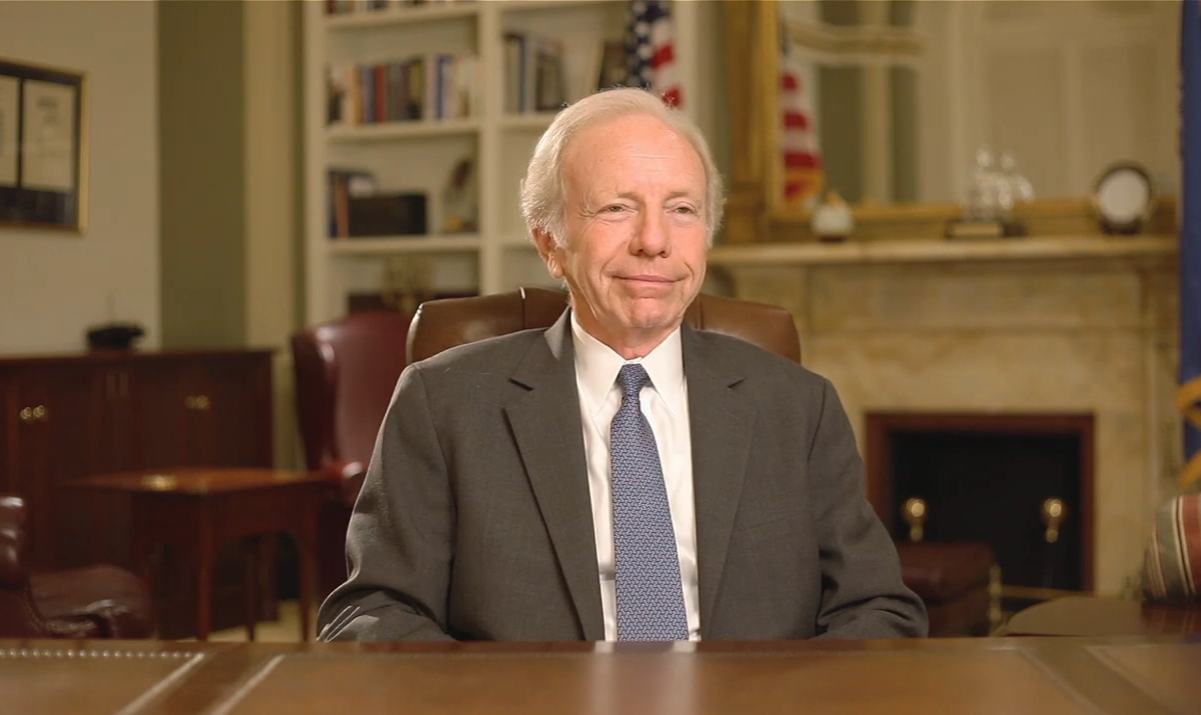
Former U.S. Sen. Joe Lieberman of Connecticut, who had served first as a longtime Democratic senator and then declared himself an independent winning reelection in 2006, died Wednesday at New York-Presbyterian Hospital due to complications from a fall. He was 82 years old.
The announcement of his death was released by Lieberman’s family and noted “his beloved wife, Hadassah, and members of his family were with him as he passed. Senator Lieberman’s love of God, his family and America endured throughout his life of service in the public interest.”
Lieberman, who nearly won the vice presidency on the Democratic ticket with former Vice President Al Gore in the disputed 2000 election and who almost became Republican John McCain’s running mate eight years later, viewed himself as a centrist Democrat, solidly in his party’s mainstream with his support of abortion rights, environmental protection, gay rights and gun control, the Washington Post reported.
The Post added that Lieberman was also unafraid to stray from Democratic orthodoxy, most notably in his consistently hawkish stands on foreign policy.
Lieberman was first elected to the U.S. Senate as a Democrat in 1988. He was also the first person of Jewish background or faith to run on a major party presidential ticket.
In 2009 he supported the Matthew Shepard and James Byrd Jr. Hate Crimes Prevention Act, which was passed as an amendment to the National Defense Authorization Act for Fiscal Year 2010 on Oct. 22, 2009, and then was signed into law on the afternoon of Oct. 28 by then-President Barack Obama.
Lieberman, who served in the Senate for more than two decades, alongside with U.S. Sen. Susan Collins (R-Maine), were the original co-sponsors of the legislation in the successful effort to repeal the Pentagon policy known as “Don’t Ask, Don’t Tell,” which barred open service by gay and lesbian servicemembers in 2011.
Lieberman said the effort to repeal “Don’t Ask, Don’t Tell” in Congress was one of the most satisfying and thrilling experiences he’s had as a senator.
“In our time, I think the front line of the civil rights movement is to protect people in our country from discrimination based on sexual orientation — all the more so when it comes to the United States military, whose mission is to protect our security so we can continue to enjoy the freedom and equal opportunity under law,” Lieberman said.
In an statement to the Washington Blade on Wednesday, Human Rights Campaign Vice President for Government Affairs David Stacy said:
“Senator Lieberman was not simply the lead Senate sponsor of the repeal of ‘Don’t Ask, Don’t Tell’ — he was its champion, working tirelessly to allow lesbian, gay, and bisexual people to serve in the military as their authentic selves. The nation’s first Jewish vice presidential nominee, Lieberman had a historic career and his unwavering support for lesbian, gay and bisexual military servicemembers is a powerful legacy. Our hearts go out to his family and friends as they grieve a tremendous loss.”
In September 2011, during a press conference marking the repeal of the Pentagon policy, questions emerged about how to extend greater benefits to LGBTQ service members.
In addition to the legislation that would repeal “Don’t Ask, Don’t Tell,” reporters asked lawmakers about legislation in the Senate known as the Respect for Marriage Act which was aimed at the repeal of the Defense of Marriage Act, which prohibited same-sex marriage. Collins and Lieberman weren’t co-sponsors of that legislation.
Collins had left the news conference at the start of the question-and-answer period. In response to a question from the Blade, Lieberman offered qualified support for the Respect for Marriage Act.
The Connecticut senator said he had issues with the “full faith and credit” portion of the Respect for Marriage Act enabling federal benefits to flow to married gay couples even if they live in a state that doesn’t recognize same-sex marriage.
“I do support it in part — I think we’ve got to celebrate what we’ve done today — I certainly support it in regard to discrimination in federal law based on sexual orientation,” Lieberman said.
That issue became a mute point after June 26, 2015, when in a landmark decision of the U.S. Supreme Court, Obergefell v. Hodges, justices ruled that the fundamental right to marry is guaranteed to same-sex couples by both the Due Process Clause and the Equal Protection Clause of the 14th Amendment.
Lieberman by that time however, had retired from the U.S. Senate. He announced he would not seek another term on Dec. 12, 2012, and left the Senate the following year. He was succeeded by Democratic Congressman Chris Murphy.
Following his retirement from the Senate, Lieberman moved to Riverdale in the Bronx and registered to vote in New York as a Democrat.
In 2024 Lieberman was leading the search to find a presidential candidate for the third-party group No Labels to run against former President Donald Trump and incumbent President Joe Biden, with whom he had served with in the Senate.
In a post on X (formerly Twitter) former President Barack Obama paid tribute to Lieberman:
“Joe Lieberman and I didn’t always see eye-to-eye, but he had an extraordinary career in public service, including four decades spent fighting for the people of Connecticut. He also worked hard to repeal “Don’t Ask Don’t Tell” and helped us pass the Affordable Care Act. In both cases the politics were difficult, but he stuck to his principles because he knew it was the right thing to do. Michelle and I extend our deepest condolences to Hadassah and the Lieberman family.”
Joe Lieberman and I didn’t always see eye-to-eye, but he had an extraordinary career in public service, including four decades spent fighting for the people of Connecticut. He also worked hard to repeal “Don’t Ask Don’t Tell” and helped us pass the Affordable Care Act. In both…
— Barack Obama (@BarackObama) March 27, 2024
Lieberman’s funeral will be held on Friday at Congregation Agudath Sholom in his hometown of Stamford, Conn. An additional memorial service will be announced at a later date.
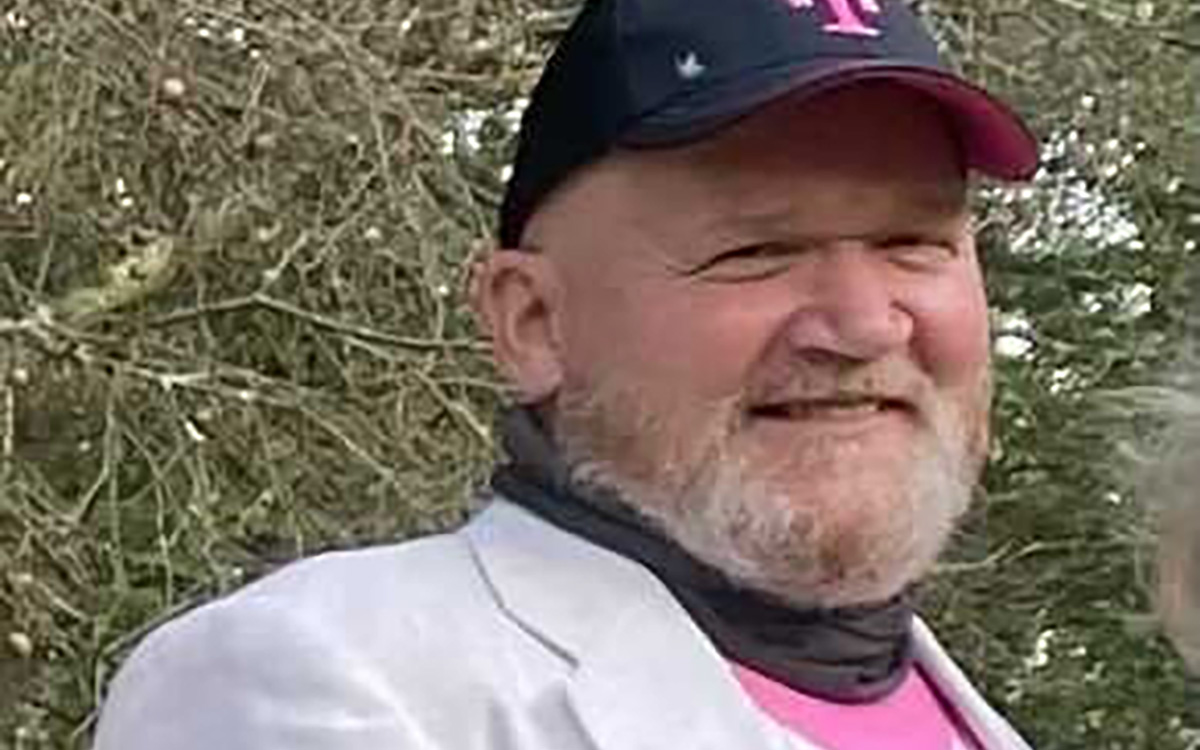
William Joseph “Bill” Troy passed away peacefully on Saturday, Jan. 13, 2024, at Cayuga Medical Center with his family at his bedside, from recent medical issues after living an active and robust life, according to a statement released by family. He was 69.
Troy was born April 15, 1955, in Elmira, N.Y. to William and Shirley Troy. He attended school in Ithaca and left to attend college at the University of Rochester. He worked at the university at various positions to help pay his way through, and he graduated in 1978 with a bachelor’s degree in history. He continued working at the university and living in Rochester until he accepted an internship in the federal offices of Congressman Matt McHugh of the NY 28th District from 1978-1983.
Troy was a life-long collector of various things, starting with coins and comics as a youngster, but in the 1980s he moved on to Art Deco lamps, disco records, antique furnishings, Arts & Crafts pottery, and a multitude of similar objects. He followed his passion of seeking antiques and used furnishings in Washington where he met many like-minded people and formed friendships with collectors and dealers.
Troy lived with his friend and partner Kirk Palmatier in Washington until December 2022 when he moved to Newark, N.Y., Palmatier’s hometown. He also wanted to enjoy his Ithaca family more by living nearer to them.
Troy is survived by five loving sisters and two loving brothers and several nieces and nephews. His death was preceded by that of his parents, William and Shirley Troy. Troy is also survived by his friend and partner Kirk Palmatier of Newark, N.Y., and a number of D.C.-area friends and business associates from over the past years. Arrangements to memorialize Troy will be with his family at a later date. In lieu of flowers, the family asks for donations to your favorite cancer or hospice organization.
Obituary
Longtime LGBTQ advocate ABilly S. Jones-Hennin dies at 81
Credited with advancing bisexual presence in the movement
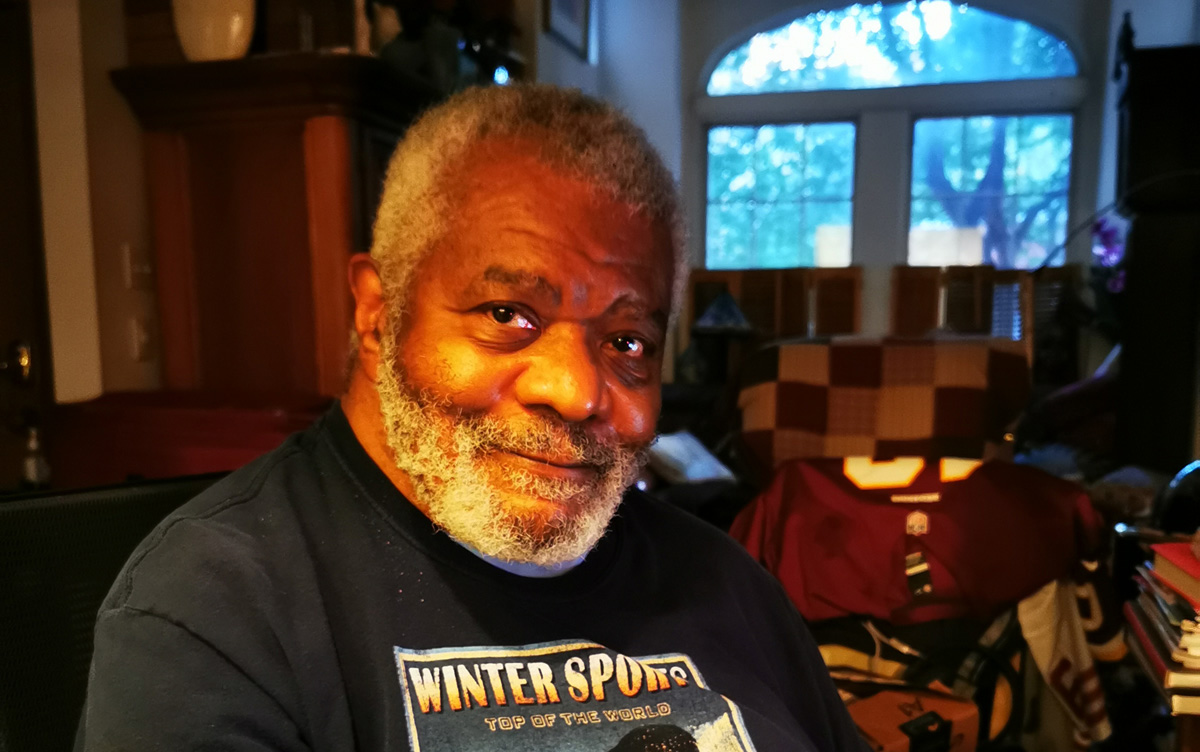
ABilly S. Jones-Hennin, a longtime D.C. LGBTQ rights advocate who co-founded the National Coalition of Black Gays in 1978 and helped organize the first March on Washington for Lesbian and Gay Rights in 1979, died Jan. 19 at his and his husband’s winter home in Chetumal, Mexico.
His partner and husband of 45 years, Christopher Hennin, said the cause of death was complications associated with Parkinson’s Disease and advance stage spinal stenosis. He was 81.
Jones-Hennin, who identified as bisexual, is credited with advancing the presence of the bisexual community within the LGBTQ rights movement while working through several organizations he helped to form to advance of the overall cause of LGBTQ and African-American civil rights.
He was born in St. Johns, Antigua in 1942 and was adopted at the age of 3 by an American civil rights activist couple. According to biographical information on Jones-Hennin released by organizations he worked with, he grew up in South Carolina and Virginia. He served in the U.S. Marines after graduating from high school in Richmond before graduating from Virginia State University in 1967. He later received a master’s degree in social work at Howard University in D.C.
A biographical write-up on Jones-Hennin by the National Black Justice Coalition, an LGBTQ organization, says he was married to a woman for seven years and had three children before he and his wife separated. In a 2022 interview published by the AARP, Jones-Hennin said the separation came after he came out as gay before coming to the self-realization that he was in fact bisexual. He said he remained on good terms with his children and even took them to LGBTQ events.
Christopher Hennin said he and Jones-Hennin met in 1978 in D.C. while Jones-Hennin worked in accounting and management for different consulting firms, including the firm Macro International. At one point in the 1980s Jones-Hennin worked for D.C.’s Whitman-Walker Clinic where he became involved with providing services to people with HIV/AIDS in the early years of the epidemic.
A write-up on Jones-Hennin by D.C.’s Rainbow History Project, which named him a Community Pioneer, its highest honor, said Jones-Hennin managed several federal and state HIV/AIDS research and evaluation projects while working for a national management consulting firm.
Jones-Hennin is credited with breaking ground in the then gay and lesbian movement in 1978 when he co-founded the National Coalition of Black Gays, which became the first national advocacy group for gay and lesbian African Americans. One year later in 1979, he served as logistics coordinator for the first ever National March on Washington for Lesbian and Gay Rights.
During the March on Washington weekend Jones-Hennin helped to organize a National Third World LGBT Conference at Howard University, which led to the creation by students of the Howard University Lambda Student Alliance, the first known LGBT organization at a historically Black college or university in the U.S.
Among his other activities, Jones-Hennin worked as minority affairs director of the National AIDS Network, was a founding member of the Gay Married Men’s Association, and helped co-found the National Association of Black & White Men Together. During the administration of President Jimmy Carter, Jones-Hennin participated in the first delegation of gay people of color to meet with officials working for a U.S. president, according to the National Black Justice Coalition write-up on Jones-Hennin.
Christopher Hennin said he and Jones-Hennin were married in 2014 and began spending winters in Mexico around 1998, in part, because the cold weather had a negative effect on Jones-Hennin’s spinal stenosis condition, which at one point, required that he undergo surgery to treat the condition, which sometimes caused intense pain.
“He was a person totally dedicated to turning adversity into hope,” Christopher Hennin said of his husband. “His passion was definitely social change and improving people’s well-being,” said Hennin, describing Jones-Hennin as a “very impressive 21st century renaissance thinker.”
Hennin said a memorial service and celebration of Jones-Hennin’s life was being planned sometime later this year at D.C.’s Metropolitan Community Church, where Jones-Hennin’s ashes will be placed in a crypt.
Lesbian activist Susan Silber, one of Jones-Hennin’s longtime friends, said she viewed him as the LGBTQ community’s Bayard Rustin in his role as the “amazing organizer” of the first national Lesbian and Gay March on Washington and as lead organizer of the Third World LGBT Conference.
“ABilly lit up the room with his warmth and charisma,” Silber said.
Jones-Hennin is survived by his husband Christopher Hennin; his sister Pat Jones; his children Valerie Jones, Anthony ‘TJ’ Jones, Forrest ‘Peaches’ Taylor, Danielle Silber, and Avi Silber; 10 grandchildren; and 11 great grandchildren.
Family members have invited those who knew Jones-Hennin to share their memories of him online, which they plan to compile and share with his friends and family members:
https://docs.google.com/forms/d/e/1FAIpQLSeBiRDTlZFi4U8s7j26bEH5UChj5fgfpeklL5Km2q34eS3V3A/viewform
-

 State Department2 days ago
State Department2 days agoState Department releases annual human rights report
-

 Maryland4 days ago
Maryland4 days agoJoe Vogel campaign holds ‘Big Gay Canvass Kickoff’
-

 Politics3 days ago
Politics3 days agoSmithsonian staff concerned about future of LGBTQ programming amid GOP scrutiny
-

 The White House1 day ago
The White House1 day agoWhite House debuts action plan targeting pollutants in drinking water

